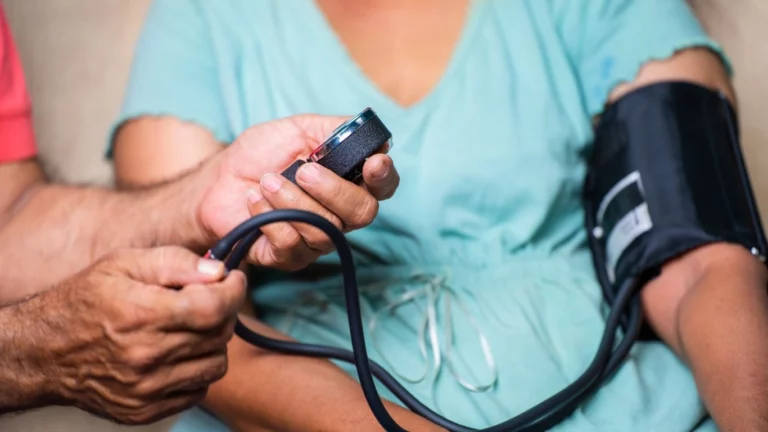Travel Tips for Asthma Patients – A Complete Guide
Traveling with asthma can be a bit challenging, but with the right preparation, you can have an enjoyable trip without compromising your health. In this guide, we’ll share some essential travel tips for asthma patients to help you stay safe and comfortable on your next adventure.
If you have asthma, you probably know that air travel, changes in weather, or being in unfamiliar places can sometimes trigger symptoms. Whether you’re planning a beach vacation, a hiking trip, or just exploring a new city, it’s important to manage your asthma well. But don’t worry – it’s totally possible to travel safely and still enjoy your time away.
Let’s dive into some tips and strategies to help asthma patients travel with confidence!
Why Asthma Patients Need Special Travel Considerations
When you have asthma, certain factors can make travel trickier. Things like air pollution, allergens, changes in climate, or even stress from travel itself can trigger asthma symptoms. Even a long flight or high altitudes can make breathing harder for some. But with the right precautions, you can minimize your risk and have an enjoyable, symptom-free experience.

Travel Tips for Asthma Patients
Here are some practical travel tips to ensure you stay safe and comfortable while traveling with asthma:
1. Plan Ahead and Pack Smart
Before you even leave home, it’s crucial to plan ahead. Make sure your medications are up to date and that you have a travel-friendly asthma kit. Here’s what you should pack:
- Inhalers (both rescue and maintenance inhalers)
- Peak flow meter (if you use one)
- Asthma medications like oral steroids, allergy meds, or any prescribed treatments
- Copies of prescriptions (in case you need more medications while abroad)
- Medical ID or a note from your doctor explaining your condition
It’s a good idea to carry a letter from your doctor explaining your asthma, especially if you’re traveling by air. This could help if you need to explain any special requirements to airport security or if you have a medical emergency.
2. Stay Hydrated
Dehydration can worsen asthma symptoms, especially during air travel. The dry air in airplanes can irritate your respiratory system. So, make sure to drink plenty of water before, during, and after your flight. Avoid caffeine and alcohol, as they can dehydrate you.
3. Be Aware of Environmental Triggers
Different locations can have different asthma triggers. Some areas may have high levels of air pollution, while others might be pollen-heavy. Here’s how to avoid common environmental triggers:
- Check air quality: Use an air quality app to check pollution levels before traveling to certain cities or regions.
- Watch for allergens: If you’re heading somewhere with high pollen, make sure you’ve packed allergy medications or your inhaler.
- Prepare for weather changes: If you’re going to a place with extreme temperatures or humidity, be prepared for how your asthma might react.

4. Choose Accommodation Wisely
Where you stay can impact your asthma symptoms. Opt for accommodations that are clean and free of mold, smoke, and other allergens. Air conditioning can be helpful, as it helps keep the air cool and filtered. If you’re staying in a place that may have dust or mold (like older buildings or basements), request a room with no carpet and ideally an air purifier.
5. Be Careful with Exercise and Physical Activity
If you plan to be active during your trip, such as hiking, swimming, or walking, make sure to listen to your body and take breaks as needed. Warm up before any physical activity and make sure you have your inhaler with you just in case you need it. If you’re in a higher altitude area, be mindful that it may be harder to breathe due to lower oxygen levels.
6. Carry a Written Action Plan
An asthma action plan outlines your symptoms, medications, and the steps to take if your asthma worsens. Make sure to carry a copy of this plan with you while traveling. It’s also helpful to have it in the language of the country you’re visiting, in case you need medical assistance.
7. Know the Local Emergency Numbers
Before traveling, find out the emergency numbers in the country you’re visiting. You should also research the nearest hospital or clinic in case of an asthma attack. This info is especially important if you’re traveling to a remote location or abroad.
Managing Asthma During Flights
Flying can present unique challenges for asthma patients. Here’s how to manage your condition while in the air:
- Check air pressure: If you have asthma, certain changes in cabin pressure could trigger symptoms. It might help to ask for a seat in a section of the plane where you feel most comfortable (like closer to the front where the air quality is better).
- Bring your medications onboard: Always have your inhalers and medications in your carry-on bag. Airport security might ask about them, so having a doctor’s note is helpful.
- Breathe deeply: The air in airplanes can be dry, so make sure to practice deep breathing techniques and stay hydrated.

Which Travel Destinations Are Best for Asthma Patients?
Some destinations are better suited for asthma patients due to their climate and environmental factors. Here are some tips for choosing the right spot:
- Mountain resorts: Places with cooler air and low levels of pollution can be great for asthma patients, especially if you enjoy outdoor activities.
- Coastal destinations: Areas by the beach, especially those with fresh, salty air, can sometimes be beneficial for asthma sufferers. However, avoid places with a lot of allergens like high pollen or mold.
- Cities with low pollution: If you’re planning on visiting a city, look for places with low air pollution and lots of green space. Scandinavian cities like Copenhagen or Helsinki have high air quality and many parks.
Conclusion
Traveling with asthma doesn’t have to be stressful. With some careful planning and awareness, you can enjoy your travels without compromising your health. Remember to pack your medications, stay hydrated, and avoid triggers as much as possible. Whether you’re going on a weekend getaway or a long vacation, a little preparation goes a long way in making your trip safe and enjoyable.
Appendices
FAQs
- Can I travel by air if I have asthma? Yes, flying is usually safe for asthma patients. Just be sure to carry your inhaler and any other medications onboard. It’s also wise to check with your doctor before traveling, especially if you’re flying internationally.
- Should I avoid certain weather conditions when traveling with asthma? Extreme cold or hot weather, humidity, and sudden changes in weather can trigger asthma symptoms. Check the forecast before you travel and pack accordingly.
- Is it safe to exercise while traveling with asthma? It’s generally safe to exercise if you’re careful and manage your asthma well. Just make sure to warm up, bring your medication, and listen to your body.
- What should I do if my asthma symptoms worsen while traveling? If your symptoms worsen, use your rescue inhaler as directed. If you don’t improve, seek medical attention immediately. Always have a written action plan for emergencies.
- Are there any destinations that are better for asthma patients? Yes, locations with clean air, low pollution, and moderate temperatures are ideal. Coastal cities, mountain resorts, and certain rural areas can be great choices.
References
- National Asthma Education and Prevention Program (NAEPP). (2024). Travel Tips for Asthma Patients. Read Article
- American Lung Association. (2024). Managing Asthma While Traveling. Read Article
- World Health Organization (WHO). (2024). Asthma and Travel: Precautions for Patients. Read Article
Disclaimer: The information in this article is for educational purposes and should not replace professional medical advice. Always consult your healthcare provider before making travel decisions related to asthma management.

Bianca Nala is a compassionate Nurse Practitioner with a strong background in primary and respiratory care. As a health writer for Healthusias.com, she combines her clinical expertise with a talent for clear, relatable storytelling to help readers better understand their health. Bianca focuses on topics like asthma, COPD, chronic cough, and overall lung health, aiming to simplify complex medical topics without losing accuracy. Whether she’s treating patients or writing articles, Bianca is driven by a single goal: making quality healthcare knowledge accessible to everyone.







